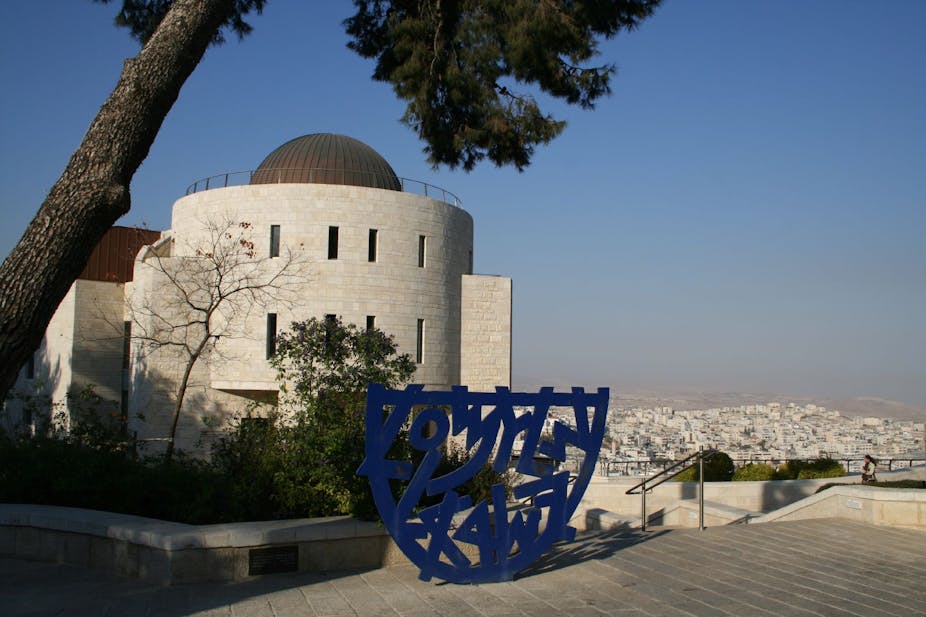The last weeks of 2012 saw a great amount of criticism levelled at the Centre for Peace and Conflict Studies at Sydney University and its director Jake Lynch following their boycott of an exchange program with Hebrew University.
Critical coverage in The Australian newspaper has been particularly intense. Christian Kerr broke the story, and wrote follow-ups here, here, here and here along with Milanda Rout, John Lyons, and editorials here and here
Lynch has said this decision was made as part of a larger academic boycott of institutional ties with Israeli universities, called The Palestinian Campaign for the Academic and Cultural Boycott of Israel (PACBI).
PACBI justifies this boycott by saying, “these institutions are complicit in the system of oppression that has denied Palestinians their basic rights guaranteed by international law”.
Legal truths
On the often emotive issue of Israel-Palestine, it is important to be clear on established facts. Critics of the academic boycott campaign seldom point out the legal fact of Israel’s illegal occupation of Palestinian territory.
The world’s highest authority on international law, the International Court of Justice, ruled in July 2004 that Israel is occupying Palestinian territory in violation of international law and international human rights treaties.
These violations include articles of the Fourth Geneva Convention; the Fourth Hague Convention 1907; UN Security Council Resolutions 446, 452 & 465; and articles of the International Covenant on Civil and Political Rights, the International Covenant on Economic, Social and Cultural Rights, and the United Nations Convention on the Rights of the Child.
Israel is a member of the International Court of Justice and has fully ratified all of these international standards, with the sole exception of the Fourth Hague Convention. This means Israel has committed to fully respect these international laws and treaties.
The Israeli government denies these violations of international law. Journalists should not take this denial as reason to avoid reporting the legal issues of occupation under the misguided idea that the facts appear “muddy” and they fear producing “unbalanced” journalism.
Unfortunately, as with most legal proceedings, one can’t simply take the accused, in this case Israel’s, word for it as to whether they have broken the law or not. The issue must be taken to the relevant legal authorities, which in this case is the the world’s authority on international law, the International Court of Justice.
As in domestic legal proceedings, a party who has been found to have violated the law may continue to publicly maintain their “innocence” no matter what the legal facts are, as the state of Israel continues to do. This refusal to accept the court’s ruling should not be read as overturning the actual legal validity of the ruling. Israel remains legally obliged to fulfil its promises regarding international law and human rights treaties.
Supporting peace does not equal anti-Semitism
The strange accusation that the Centre for Peace and Conflict Studies and the academic boycott it supports are anti-Israel or anti-Semitic also needs to be corrected. Neither the centre nor the academic boycott call for the shunning of an individual or group based on their Israeli, Jewish (or any other) identity. The PACBI guidelines are very clear on this: “Mere institutional affiliation to the Israeli academy is … not a sufficient condition for applying the boycott”.
Indeed, the centre regularly hosts Israeli and Jewish academics and speakers. These include Dr Jeff Halper, Professor Ilan Pappe, Dr Uri Davis, Rabbi Michael Lerner, Professor Noam Chomsky, journalist Antony Loewenstein, the Sydney-based Palestinian - Jewish Dialogue Group, author Anna Baltzer and activist Angela Budai. The centre also recently hosted a seminar supported by Independent Australian Jewish Voices.
Ignoring these individuals’ many initiatives promoting peace in the Middle East is a dangerous mistake. In conflicts such as Israel-Palestine, governments don’t always have all the answers. Given the lack of success of official diplomacy in the region we should be encouraging, not dismissing, these additional non-official peace efforts. The centre was set up with stated goals of promoting a culture of peace and reducing violence in all its forms.
The fact that pro-peace Israeli and Jewish voices often criticise Israel’s illegal occupation of Palestine is not surprising given that the International Court of Justice has ruled Israel’s occupation of Palestinian is illegal under international law and human rights treaties. When it comes to established violations of international law, human rights and the violence which often accompanies these, a peace centre can hardly be expected to be “neutral” or disinterested.
Confusing opposition to the Israeli government’s violation of international law with being “anti-Israel” or “anti-Semitic” is as misguided as labelling any critics of Australian government policies “anti-Australian”. In international conflicts such as Israel-Palestine governments can’t simply be relied on to provide all the answers: free speech and open criticism of government are key.
A fair play
Sydney University’s special exchange program with Hebrew University, which Hebrew University academic Prof Dan Avnon hoped to take advantage of, was a legitimate focus for the boycott according to PACBI guidelines.
I note that Hebrew University is yet to publish an official statement condemning the state of Israel’s illegal occupation of Palestinian territory. What’s more, according to the Israeli-Palestinian Alternative Information Centre, numerous special programs at Hebrew University actively support the Israeli military and its personnel, which the International Court of Justice makes clear are an active party in the illegal occupation of Palestinian territory.
The established fact of Israel’s illegal occupation of Palestinian territory is a key reason given for the academic boycott of complicit Israeli academic institutions.
For journalists to ignore this shows a distressing ignorance, or fearful avoidance, of issues which are of obvious importance to Australians and audiences worldwide.
So I call on journalists and commentators: if you are concerned with serious reporting of the academic boycott and the wider Israel-Palestine conflict, show it by tackling the issues and facts, rather than tackling the man.

